- Home
- George R. R. Martin
Windhaven Page 8
Windhaven Read online
Page 8
Several people shouted support. Maris, heartened, looked over at Corm, and saw that his smile was flickering. Suddenly he had doubts.
A familiar friend rose then, and smiled at her from above. "I'm Garth of Skulny," he said. "I'm with Maris, too!" Another speaker backed her, then another, and Maris smiled. Dorrel had scattered friends all over the audience and now they were trying to stampede the assembly her way. And it seemed to be working!
For, in between the endorsements from flyers she had known for years, total strangers stood to voice their support. Had they won, then? Corm clearly looked worried.
"You recognize what is wrong with our way, but I think your academy is not the answer." The words jolted Maris out of her complacent optimism. The speaker was a tall, blond woman, a leading flyer from the Outer Islands. "There is a reason for our tradition and we should not weaken it, or our children may go back to the idiocy of trial by combat. What we must do is teach our children better. We must teach them to have more pride, and we must build the needed skills in them from the time they are very small.
This is as my mother taught me, and as I am teaching my son. Perhaps a test of some sort is necessary — your idea of a challenge is good." Her mouth twisted wryly. "I admit, I do not look forward to the day, which comes too quickly, when I must give up my wings to Vard. Both of us will be too young, I think, when that day comes. That he should have to compete with me, to prove himself as good— no, a better flyer — than I am, yes, that is an excellent idea."
Other flyers in the hall were nodding in agreement. Yes, yes, of course, why hadn't they seen what a good idea some sort of testing would be? Everyone knew that the coming-of-age was rather arbitrary, that some were still children when they took on wings, others full adults. Yes, let the youngsters prove themselves as flyers first… the tide swept the assembly.
"But this academy," the speaker said gently. "That is not necessary. We birth enough new flyers among ourselves. I know your background and I can understand your feelings, but I cannot share them. It would not be wise." She sat down, and Maris felt her heart sink with her. That had done it, she thought. Now they will vote for a test, but the sky will still be closed to those born of the wrong parents; the flyers would reject the most im-portant part. So close, she had almost done it, but not close enough.
A gaunt man in silk and silver stood. "Arris, flyer and Prince of Artellia," he said, his eyes ice blue beneath his silver crown. "I vote with my sister from the Outer Islands. My children are of royal blood, born and bred to wings. It would be a joke to force them to fly in races with commoners. But a test, to see when they are worthy, now that is an idea worthy of a flyer."
He was followed by a dark woman all in leather. "Zevakul of Deeth in Southern Archipelago," she began.
"Each year I fly messages for my Landsman, but I also serve the Sky God, like all of the upper castes.
The concept of passing wings to a lower one, a soil-child, possibly an unbeliever— no!"
Other echoes came, and rolled across the hall:
"Joi, of Stormhammer-the-Outermost. I say yes, make us fly to earn our wings, but only against the children of flyers."
"Tomas, of Little Shotan. Children of the land-born could never learn to love the sky as we do. It would be a waste of time and money to build this academy Maris speaks of. But I'm for a test."
"Crain of Poweet, and I'm with these others. Why should we have to compete with the children of fisher-people? They don't let us compete for their boats, do they?" The hall rocked with laughter, and the older flyer grinned. "Yes, a joke, a good one. Well, brothers, we would be a joke, this academy would be a joke if it let in riff-raff of any birth at all. Wings belong to flyers and over the years it has remained that way because it is the way it is. The other people are content, and very few of them really want to fly.
For most it is only a passing whim, or too frightening to think about. Why should we encourage idle dreams? They are not flyers, were never meant to be, and they can lead worthwhile lives in some other…"
Maris listened in disbelief and rising anger, infuriated by the smug self-righteousness of his tone… and then she saw with horror that other flyers, including some of the younger ones, were bobbing their heads complacently in time with his words. Yes, they were better because they were born of flyers, yes, they were superior and did not wish to mix, yes, yes. Suddenly it did not matter that in times past, she had felt much the same way about the land-bound. Suddenly all she could think of was her father, her blood-father, the dead fisherman she scarcely remembered. Memories she had thought gone came back: sensory impressions, chiefly — stiff clothes that reeked of salt and fish; warm hands, rough but gentle, that smoothed her hair and wiped tears off her cheeks after her mother had scolded her — and stories he had told, in his low voice, tales of things he had seen that day in his little skiff — what the birds had looked like, racing away from a sudden storm, how the moonfish leaped toward the night sky, how the wind felt and the waves sounded against the boat. Her father had been an observant man and a brave one, daring the ocean every day in his frail boat, and Maris knew in her hot rage that he was the inferior of no one here, of no one on Windhaven.
"You snobs," she said sharply, not caring anymore whether it would help or hurt the vote. "All of you.
Thinking how superior you are, just because you were born of a flyer and inherited wings through no goodness of your own. You think you inherited your parents' skill? Well, how about the other half of your heritage? Or were all of you born of flyer marriages?" She jabbed an accusing finger at a familiar face on the third tier. "You, Sar, you were nodding just then. Your father was a flyer, yes, but your mother was a trader, and born of fisherfolk. Do you look down on them? What if your mother confessed that her husband was not your real father — what if she told you that you could blame your birth on a trader she met in the East? What then? Would you feel obliged to give up your wings and seek some other life?"
Moon-faced Sar only gaped at her; never a quick man, he couldn't understand why she had singled him out. Maris withdrew her finger and launched her anger against them all.
"My true father was a fisherman, a fine, brave, honest man who never wore wings and never wanted them. But if, if he had been chosen to be a flyer, he would have been the best of all! Songs would be sung of him, celebrating him! If we inherit our talent from our parents, look at me. My mother can spin and gather oysters. I cannot. My father could not fly. I can. And some of you know how good I am — better than some who were born to it." She turned and glanced down the length of the table. "Better than you, Corm," she said in a voice that carried all through the great hall. "Or have you forgotten?"
Corm glared up at her, his face flushed with anger, a thick vein bulging in his neck. He said nothing. Maris turned back to the hall. Her voice softened, and she looked out on them with false solicitude. "Are you afraid?" she asked them. "Have you hung onto your wings only on the strength of a pretense? Are you afraid that all the grubby little fisherchildren will come and snatch them away from you, prove themselves better flyers than you and make you all look fools?"
Then all her words were gone, and her anger. And Maris sat back in her chair, and silence hung heavy in the great stone hall. Finally a hand went up, and then another, but Jamis only stared blankly ahead, his face thoughtful. No one moved until at last he stirred himself, as if from sleep, and gestured at someone in the crowd.
High up against the wall, an old man with one dead arm stood alone in the flickering yellow torchlight.
The assembly turned to watch him.
"Russ, of Lesser Amberly," he began. His tone was gentle. "My friends, Maris is right. We have been fools. And none of us has been so big a fool as I.
"Not long ago, I stood on a beach and said I had no daughter. Tonight, I wish I could have back those words, I wish I still had the right to call Maris my daughter. She has made me very proud. But she isn't mine. No, as she said, she was born of a fisherman, a better man
than I. All I did was love her for a bit, and teach her how to fly. It didn't take much teaching, you know. She was always so eager. My little Woodwings. There was nothing could stop her, nothing. Not even me, when like a fool I tried to, after Coll was born.
"Maris is the finest flyer on Amberly, and my blood has nothing to do with it. Only her desire matters, only her dream. And if you, my flyer brothers, if you have such disdain for the children of the land-bound, then it is a shaming thing for you to fear them. Have you so little faith in your own children? Are you so certain that they could not keep their wings, against a fisherchild's hungry challenge?"
Russ shook his head. "I don't know. I'm an old man, and things have been confused lately. But I know this much: If I still had use of my arm, no one would take my wings from me, not even if his father was a nighthawk. And no one will ever take Maris' wings until she is ready to set them down. No. If you truly teach your children to fly well, they will keep the sky. If you have the pride you boast of, you'll live up to it, and prove it, by letting the wings be worn only by those who have earned them, only by those who have proven themselves in the air."
Russ sat down again, and the darkness at the top of the hall swallowed him up. Corm began to say something, but Jamis the Senior silenced him. "We have had enough from you," he said. Corm blinked in surprise.
"I think I will say something," Jamis said. "And then we will vote. Russ has spoken wisdom for all of us, but one thought I must add. Are we not, each of us, descended from the star sailors? All of Windhaven is family, really. And there is none among us who cannot find a flyer in his or her family tree, if we go back far enough. Think of that, my friends. And remember that while your eldest child may wear your wings and fly, his younger brother and sisters and all their children for generations after will be land-bound.
Should we really deny them the wind forever, simply because their ancestors were second-born, instead of first?" Jamis smiled. "Perhaps I should add that I was my mother's second son. My elder brother died in a storm six months before he was to take his wings. A small thing, that. Don't you think?"
He looked around, at the two Landsmen who flanked him, who had sat silently through all the proceedings, quieted by flyers' law. He whispered first to one, then to the other, and nodded.
"We find that Corm's proposal, to name Maris of Lesser Amberly an outlaw, is out of order," Jamis said.
"We will now vote on Maris' proposal, to establish a flyers' academy open to all. I vote in favor."
After that, there was no more doubt.
Afterward, Maris felt slightly in shock, giddy with victory, yet somehow not able to believe that it was really over, that she did not have to fight anymore. The air outside the hall was clean and wet, the wind blowing steadily from the east. She stood on the steps and savored it, while friends and strangers crowded about her, wanting to talk. Dorrel kept his arm around her, and did not ask questions nor express amazement; he was restful to lean against. What now? she wondered. Home again? Where was Coll? Perhaps he'd gone to fetch Barrion and bring the boat.
The crowd around her parted. Russ stood there, Jamis at his side. Her stepfather was holding a pair of wings. "Maris," he said.
" Father?" Her voice was trembling.
"This is how it should have been all along," he said, smiling at her. "I would be proud if you would let me call you daughter again, after all that I have done. I would be even prouder if you would wear my wings."
"You've won them," Jamis said. "The old rules don't apply, and you're certainly qualified. Until we get the academy going, there's no one to wear them except you and Devin. And you took better care of these than Devin ever did of his."
Her hands went out to take the wings from Russ. They were hers again. She was smiling, no longer tired, buoyed by the weight of them in her hands, the familiarity of them. "Oh, Father," she said, and then, weeping, she and Russ embraced each other.
When the tears were gone, they all went to the flyers' cliff, quite a crowd of them. "Let's fly to the Eyrie,"
she said to Dorrel. Then there was Garth, just beyond — she had not noticed him in the crowd before.
"Garth! You come too. We'll have a party!"
"Yes," Dorrel said, "but is the Eyrie the place for it?"
Maris flushed. "Oh, of course not!" She glanced around at the crowd. "No, we'll go back to our house, on Lesser, and everyone can come, us and Father and the Landsman and Jamis, and Barrion will sing for us, if we can find him, and—" and then she saw Coll, running toward her, his face alight.
"Maris! Maris!" He ran to her and hugged her enthusiastically, then broke away, grinning.
"Where did you go to?"
"Off with Barrion, I had to, I'm making a song. Just got the start of it now, but it will be good, I can feel it, it really will be. It's about you."
"Me?"
He was obviously proud of himself. "Yes. You'll be famous. Everyone will sing it and everyone will know about you."
"They already do," Dorrel said. "Believe me."
"Oh, but I mean forever. For as long as this song is sung they'll know about you — the girl who wanted wings so much she changed the world."
And perhaps it was true, Maris thought later, as she strapped on her wings and rose into the wind with Dorrel and Garth by her side. But to have changed the world didn't seem half so important nor half so real as the wind in her hair, the familiar pull of muscles as she rose, riding the beloved currents she had thought might be lost to her forever. She had her wings again, she had the sky; she was whole now and she was happy.
PART TWO
One-Wing
THE ODDEST THING about dying was how easy it was, how calm and beautiful.
The still air had come upon Maris without warning. An instant before, the storm had raged all around her.
Rain stung her eyes and ran down her cheeks and ting'd against the silver metal of her wings, and the winds were full of tumult, pushing her this way and that, slapping her contemptuously from side to side as if she were a child new to the air. Beneath the wing struts, her arms ached from the struggle. Dark clouds obscured the horizon, while the sea below was frothing and troubled; land was nowhere in sight. Maris cursed and hurt and flew.
Then peace enveloped her, and calm, and death.
The winds quieted and the rains stopped. The sea ceased its wild heaving. The clouds themselves seemed to draw back, until they were infinitely far away. A silence fell, an eerie hush, as if time had paused to catch its breath.
In the still air, with her bright wings spread wide, Maris began to descend.
It was a slow, gradual descent, a thing of beauty, graceful and inevitable. Without a breeze to push or lift, she could only glide forward and down. It was not a fall. It seemed to last forever. Far ahead she could see the spot where she would hit the water.
Briefly her flyer's instincts bid her struggle. She banked this way and that, tried to tack, searched vainly for an updraft or a current in the quiet sky. Her wings, twenty feet across, lifted and fell, and a sudden shaft of wan sunlight gleamed on the silver metal. But her descent continued.
Then she was calm, as calm as the air, her inner turmoil as still as the sea below. She felt the deep peace of surrender, the relief of ending her long battle with the winds. She had always been at their mercy, she thought, never truly in control. They were wild and she was weak, and she was foolish to have dreamed otherwise. She looked up, wondering if she would see the ghost flyers who were said to haunt still air.
The tips of her boots brushed the water first, and then her body shattered the gray, smooth mirror of the ocean. The impact of the cold water seared her like a flame, and she sank…
… and woke, wet and gasping for breath.
Silence pounded in her ears. The sweat on her body dried in the cool air, and she sat up, disoriented and blind. Across the room she could see a thin red line of banked coals, but they were at the wrong side of the bed to be the Eyrie, and too far away for her fireplace at ho
me. The air smelled faintly of damp and sea mold.
The smell gave it away. She was at the academy, she thought with relief, at Woodwings; suddenly all the shadows resolved themselves into the mundane and familiar. The tension drained slowly from her body, and now Maris was fully awake. Pulling a roughly woven shift over her head, she moved carefully across the dark room to the fireplace, where she took a woven taper from the pile and lit a sand candle.
In the light she saw the little stone jug beside her low bed, and smiled. Just the thing to wash away the nightmares.
She sat cross-legged on the bed as she sipped the cool, woody wine, staring at the flickering candle flame all the while. The dream disturbed her. Like all flyers, Maris feared still air, but until now she had not had nightmares about it. And the peace of it all, the sense of surrender and acceptance — those were the worst parts. I am a flyer, she thought, and that was not a true flyer's dream.
Someone knocked on her door.
"Enter," Maris said, setting the wine jug aside.
S'Rella stood in the doorway, a slight, dark girl with her hair cropped short in the Southern fashion.
"Breakfast soon, Maris," she said, the slight slurring of her speech reflecting her origins. "Sena wants to see you before, though. Up in her room."
"Thanks," Maris said, smiling. She liked S'Rella, perhaps best of all the students at the Woodwings academy. The island in the Southern Archipelago where S'Rella had been born was a world away from Maris' own Lesser Amberly, but despite their differences Maris saw a lot of herself in the younger girl.

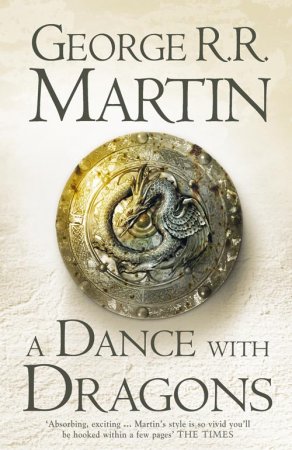 A Dance with Dragons
A Dance with Dragons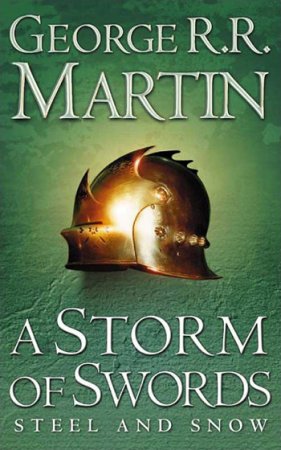 A Storm of Swords
A Storm of Swords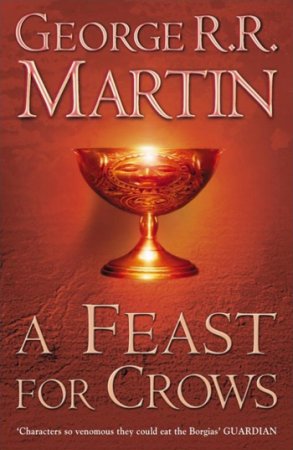 A Feast for Crows
A Feast for Crows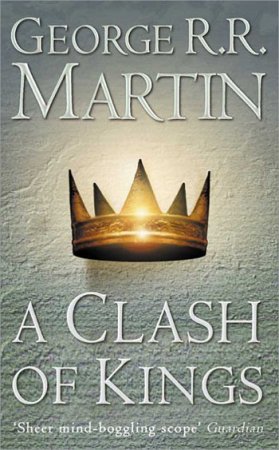 A Clash of Kings
A Clash of Kings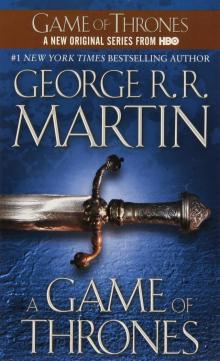 A Game of Thrones
A Game of Thrones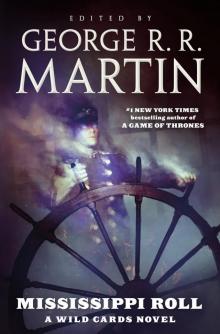 Mississippi Roll
Mississippi Roll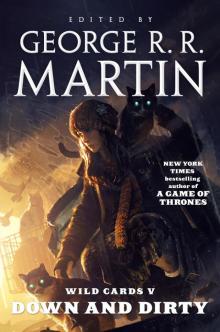 Wild Cards V: Down and Dirty
Wild Cards V: Down and Dirty Busted Flush
Busted Flush When the Devil Drives
When the Devil Drives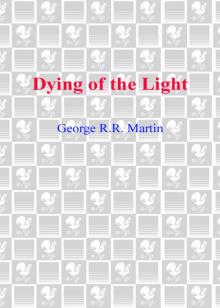 Dying of the Light
Dying of the Light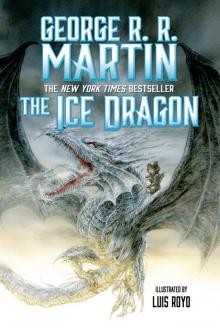 The Ice Dragon
The Ice Dragon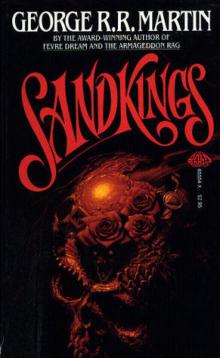 Sandkings
Sandkings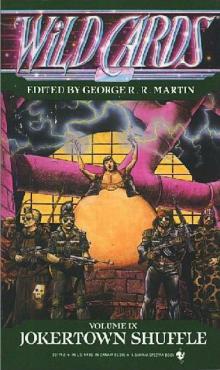 Jokertown Shuffle
Jokertown Shuffle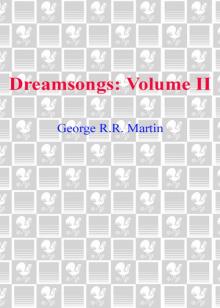 Dreamsongs. Volume II
Dreamsongs. Volume II Deuces Down
Deuces Down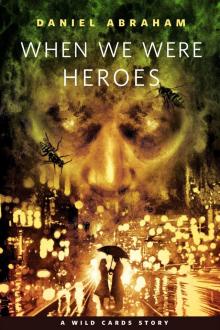 When We Were Heroes
When We Were Heroes Warriors
Warriors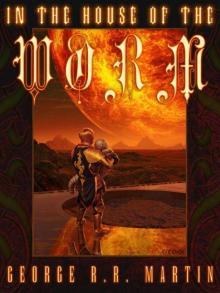 In the House of the Worm
In the House of the Worm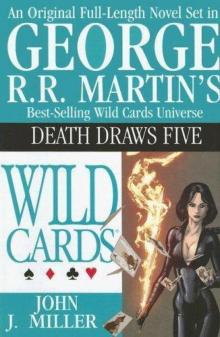 Death Draws Five
Death Draws Five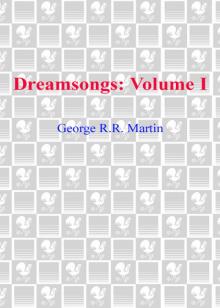 Dreamsongs. Volume I
Dreamsongs. Volume I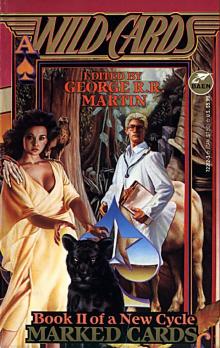 Marked Cards
Marked Cards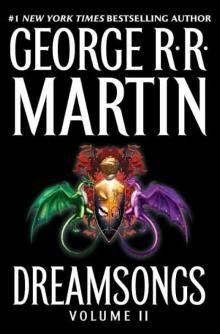 Dreamsongs
Dreamsongs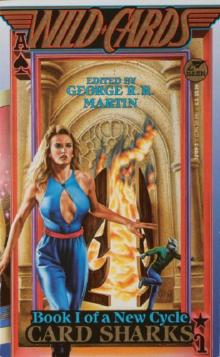 Card Sharks
Card Sharks Dangerous Women
Dangerous Women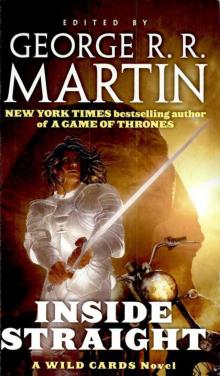 Inside Straight
Inside Straight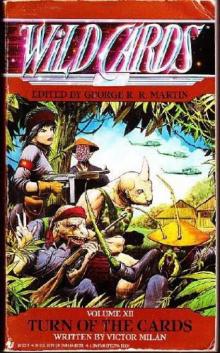 Turn of the Cards
Turn of the Cards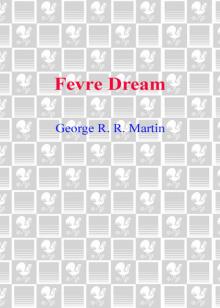 Fevre Dream
Fevre Dream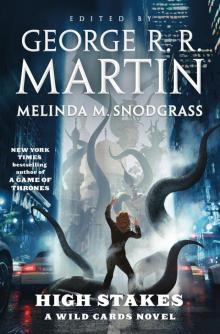 High Stakes: A Wild Cards Novel
High Stakes: A Wild Cards Novel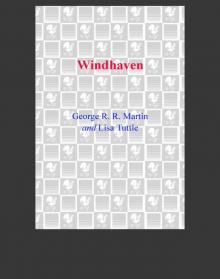 Windhaven
Windhaven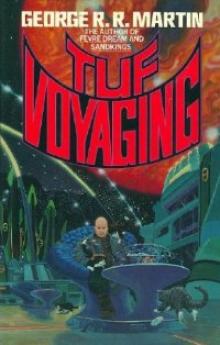 Tuf Voyaging
Tuf Voyaging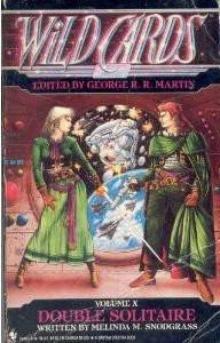 Double Solitaire
Double Solitaire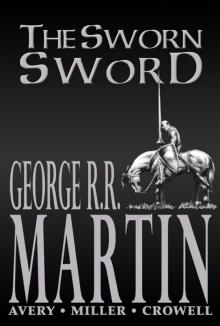 The Sworn Sword
The Sworn Sword Low Chicago
Low Chicago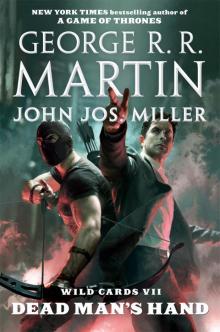 Dead Man's Hand
Dead Man's Hand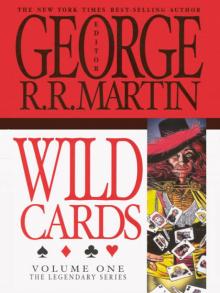 Wild Cards
Wild Cards Black Trump
Black Trump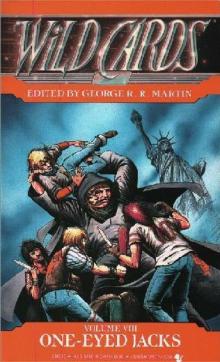 One Eyed Jacks
One Eyed Jacks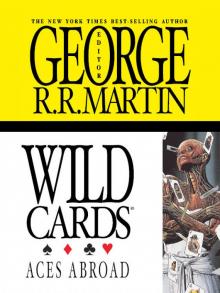 Wild Cards: Aces Abroad
Wild Cards: Aces Abroad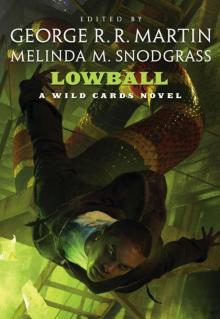 Lowball: A Wild Cards Novel
Lowball: A Wild Cards Novel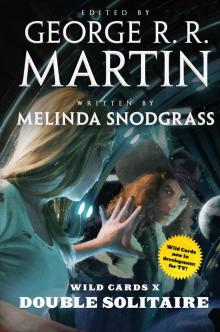 Double Solitaire (2019 Edition)
Double Solitaire (2019 Edition)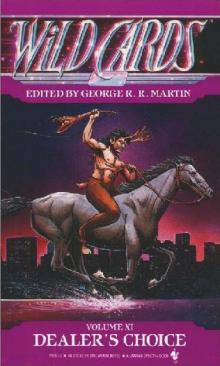 Dealer's Choice
Dealer's Choice Ace in the Hole
Ace in the Hole A Song for Lya: And Other Stories
A Song for Lya: And Other Stories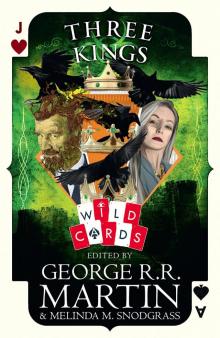 Three Kings
Three Kings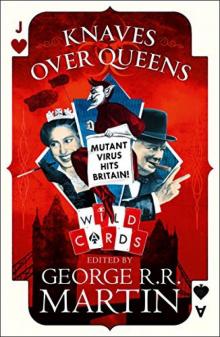 Knaves Over Queens
Knaves Over Queens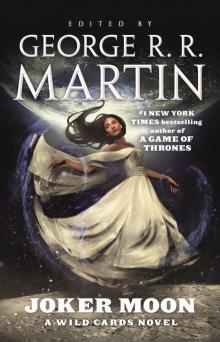 Joker Moon
Joker Moon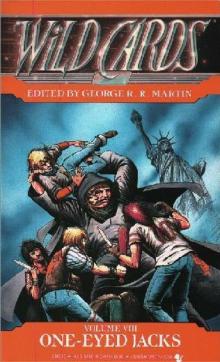 One Eyed Jacks wc-8
One Eyed Jacks wc-8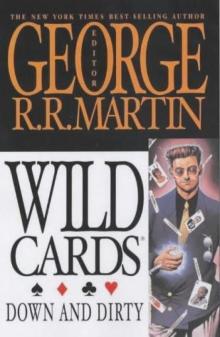 Down And Dirty wc-5
Down And Dirty wc-5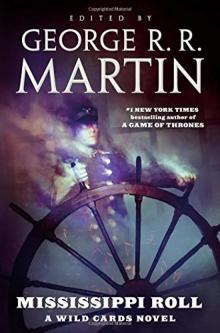 Mississippi Roll_A Wild Cards Novel
Mississippi Roll_A Wild Cards Novel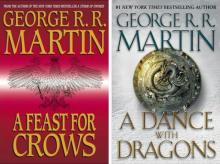 A Feast for Dragons
A Feast for Dragons The Sworn Sword ttodae-2
The Sworn Sword ttodae-2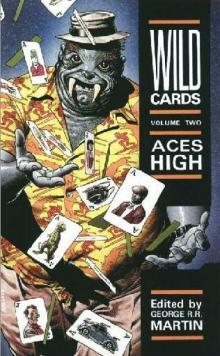 Aces High wc-2
Aces High wc-2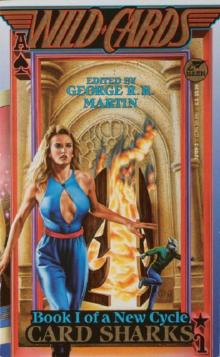 Wild Cards 13 : Card Sharks
Wild Cards 13 : Card Sharks Way of the Wizard
Way of the Wizard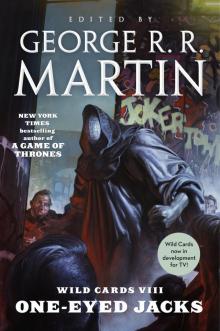 Wild Cards VIII: One-Eyed Jacks
Wild Cards VIII: One-Eyed Jacks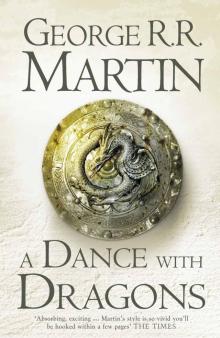 A Dance With Dragons: Book 5 of A Song of Ice and Fire (Song of Ice & Fire 5)
A Dance With Dragons: Book 5 of A Song of Ice and Fire (Song of Ice & Fire 5) The Princess and The Queen, Or, The Blacks and The Greens (a song of ice and fire)
The Princess and The Queen, Or, The Blacks and The Greens (a song of ice and fire)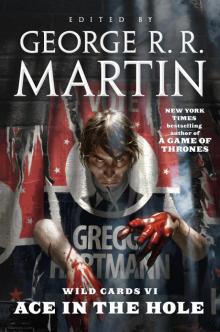 Wild Cards VI--Ace in the Hole
Wild Cards VI--Ace in the Hole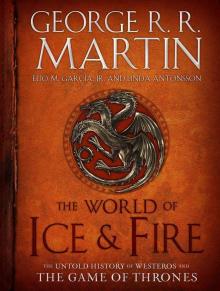 The World of Ice & Fire: The Untold History of Westeros and the Game of Thrones (A Song of Ice and Fire)
The World of Ice & Fire: The Untold History of Westeros and the Game of Thrones (A Song of Ice and Fire)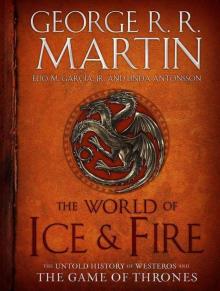 The World of Ice & Fire: The Untold History of Westeros and the Game of Thrones
The World of Ice & Fire: The Untold History of Westeros and the Game of Thrones Busted Flush wc-19
Busted Flush wc-19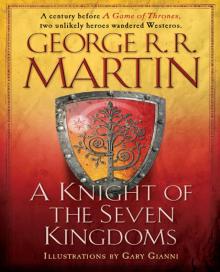 A Knight of the Seven Kingdoms
A Knight of the Seven Kingdoms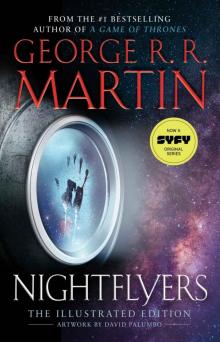 Nightflyers: The Illustrated Edition
Nightflyers: The Illustrated Edition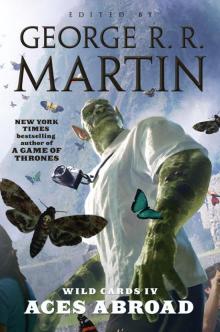 Wild Cards IV
Wild Cards IV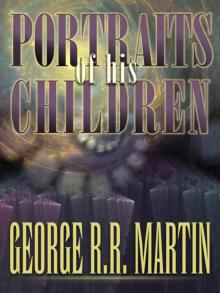 Portraits of His Children
Portraits of His Children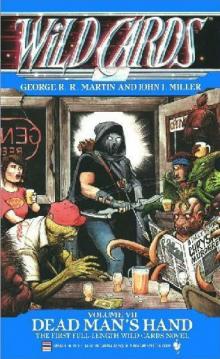 Dead Mans Hand wc-7
Dead Mans Hand wc-7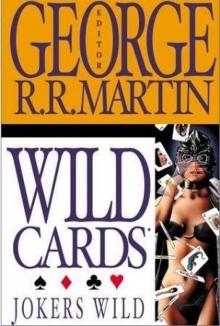 Jokers Wild wc-3
Jokers Wild wc-3 The Lonely Songs of Laren Dorr
The Lonely Songs of Laren Dorr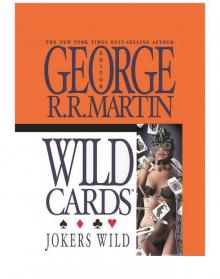 Wild Cards III: Jokers Wild
Wild Cards III: Jokers Wild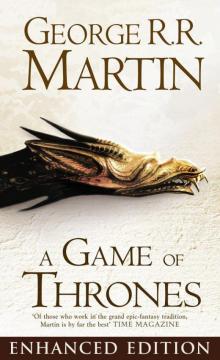 A Game of Thrones Enhanced Edition
A Game of Thrones Enhanced Edition Nightflyers & Other Stories
Nightflyers & Other Stories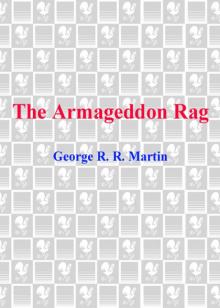 Armageddon Rag
Armageddon Rag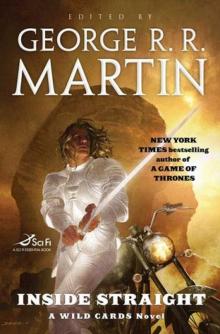 Wild Cards: Inside Straight
Wild Cards: Inside Straight A Song for Lya
A Song for Lya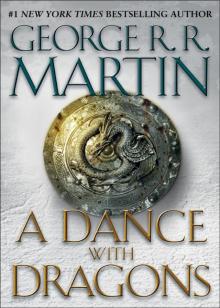 A Dance with Dragons: A Song of Ice and Fire: Book Five
A Dance with Dragons: A Song of Ice and Fire: Book Five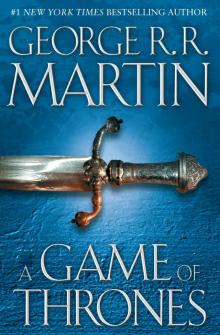 Song of Fire & Ice 01 - A Game of Thrones
Song of Fire & Ice 01 - A Game of Thrones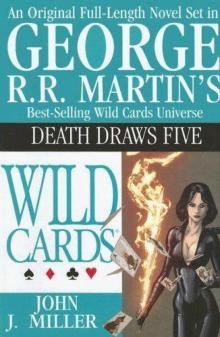 Death Draws Five wc-17
Death Draws Five wc-17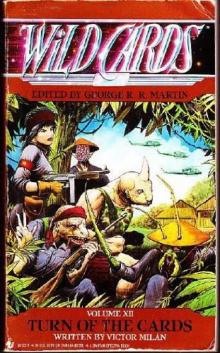 Turn of the Cards w-12
Turn of the Cards w-12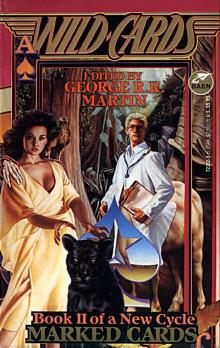 Wild Cards 14 - Marked Cards
Wild Cards 14 - Marked Cards Hunter's Run
Hunter's Run The Glass Flower
The Glass Flower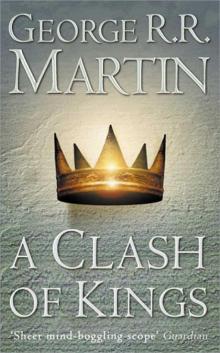 A Clash of Kings asoiaf-2
A Clash of Kings asoiaf-2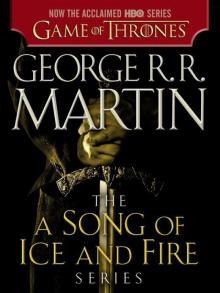 A Game of Thrones 5-Book Bundle: A Song of Ice and Fire Series: A Game of Thrones, A Clash of Kings, A Storm of Swords, A Feast for Crows, and A Dance with Dragons (Song of Ice & Fire)
A Game of Thrones 5-Book Bundle: A Song of Ice and Fire Series: A Game of Thrones, A Clash of Kings, A Storm of Swords, A Feast for Crows, and A Dance with Dragons (Song of Ice & Fire) Ace In The Hole wc-6
Ace In The Hole wc-6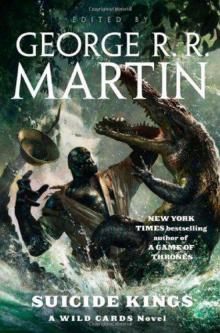 Suicide Kings wc-20
Suicide Kings wc-20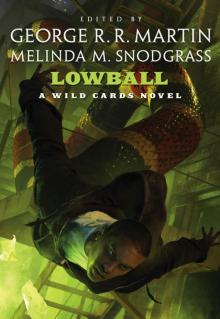 Lowball
Lowball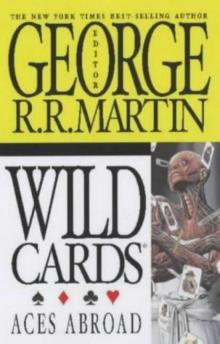 Aces Abroad wc-4
Aces Abroad wc-4 George R. R. Martin's a Game of Thrones 4-Book Bundle
George R. R. Martin's a Game of Thrones 4-Book Bundle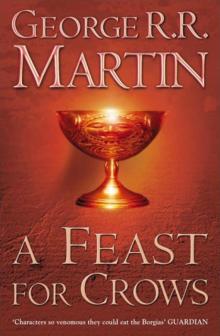 A Feast for Crows asoiaf-4
A Feast for Crows asoiaf-4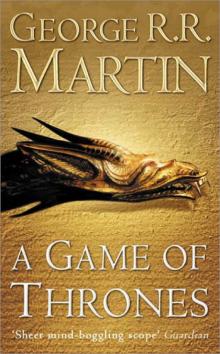 A Game of Thrones asoiaf-1
A Game of Thrones asoiaf-1 The Mystery Knight ttodae-3
The Mystery Knight ttodae-3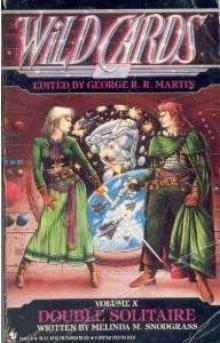 Double Solitaire w-10
Double Solitaire w-10 Wild Cards 15 - Black Trump
Wild Cards 15 - Black Trump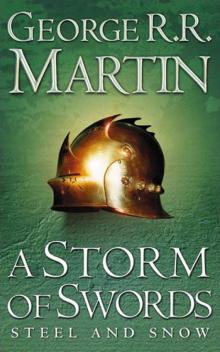 A Storm of Swords asoiaf-3
A Storm of Swords asoiaf-3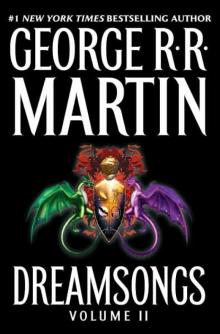 The Hedge Knight ttodae-1
The Hedge Knight ttodae-1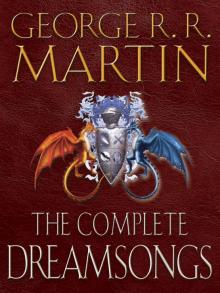 Dreamsongs 2-Book Bundle
Dreamsongs 2-Book Bundle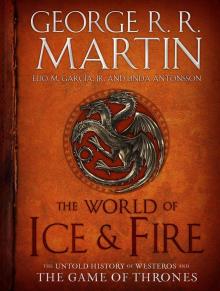 The World of Ice & Fire
The World of Ice & Fire Starlady & Fast-Friend
Starlady & Fast-Friend Old Mars
Old Mars Fantasy For Good: A Charitable Anthology
Fantasy For Good: A Charitable Anthology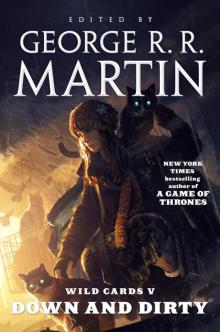 Wild Cards V
Wild Cards V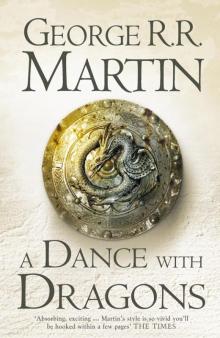 A Dance with Dragons asoiaf-5
A Dance with Dragons asoiaf-5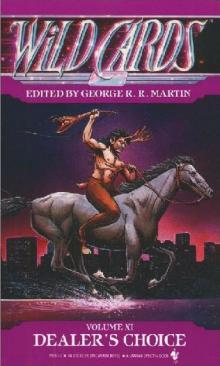 Dealer's Choice w-11
Dealer's Choice w-11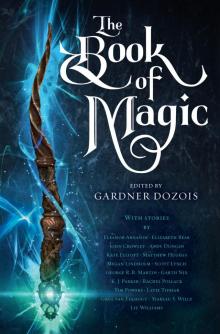 The Book of Magic
The Book of Magic A Game of Thrones 4-Book Bundle
A Game of Thrones 4-Book Bundle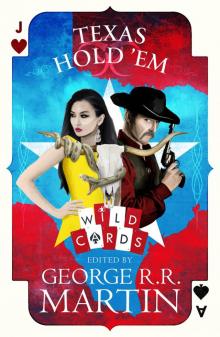 Texas Hold 'Em
Texas Hold 'Em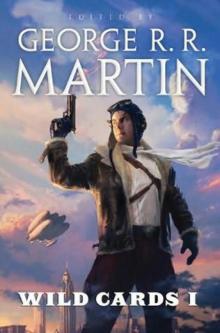 Wildcards wc-1
Wildcards wc-1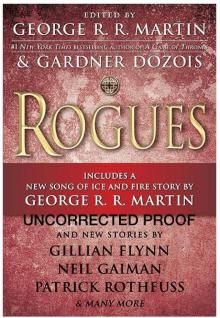 Rogues
Rogues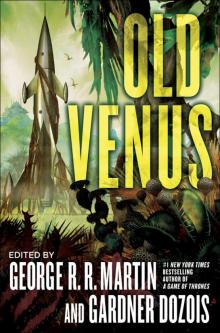 Old Venus
Old Venus